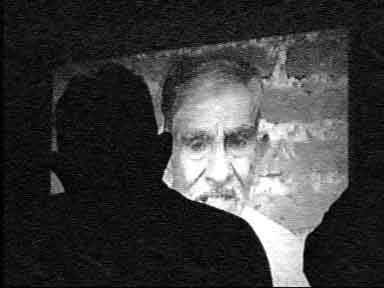Argentina cinema between horror and hope
 In this South American country strained by a deep crisis, film directors spent years trying to reflect the roots of a disbanding society.
In this South American country strained by a deep crisis, film directors spent years trying to reflect the roots of a disbanding society.
However, new productions tend to propose alternatives as economy improves and the worst is over. The city is the enemy, while rural traditions are being idealized by the new generation of filmmakers.

The Mar del Plata 19th Film Festival celebrated last week in the well-known tourist resort in the south of the Buenos Aires province could mean a turning point in Argentina’s film industry. Recent productions, including the Berlin awarded “Memories of the Plundering” of Fernando Solanas –a film that analyses the period between 1976-2001, retelling the economic, social, political and moral decadence- try to reflect the cruel reality of the deep social crisis that strains Argentina.
Unemployment, violence, poverty and destruction of social ties – mostly associated with large cities such as Buenos Aires – have been usual topics for years. “The country has been devastated by new, silent and systematic aggression that was leaving behind more casualties than the ones left by the terrorism from the State or Malvinas war”, has said Solanas explaining what inspired his latest documentary.
However, young generation of filmmakers is trying to suggest alternatives to the deep crisis stating that another country is possible. “We are a bit tired of stories about the city and its crisis: we want to tell our own experience”, told Pravda.Ru, Camilo Jose Gomez, a 25 year old director from the city of Corrientes, some 700 kilometers north of Buenos Aires.
Gomez, as many others of his generation, looks into the old traditions of the rural areas of the country to find an answer to so much misery. Bucolic views of small towns in the interior of the Buenos Aires province –country’s most productive areas- are usually contrasted with the horror of unpunished crimes in the urban jungle.
An example of this is the comic film called “The Living Paradise” exhibited at Mar del Plata’s Festival. It tells the story of two unemployed youngsters living in the outskirts of Buenos Aires city who read in a newspaper about a town in the interior of the country where violence does not exist and everybody has a job. They decide to go there in a stolen car to rob a drugstore, only to get killed by the owner. The contrast is perfect, but does not suit with government’s policy meant to re-industrialize the country by opening new factory, which obviously means more city.
Horrorized by large cities, Argentine filmmakers tend to idealize the situation in the countryside, almost equally shook by a ruined economy. “At least it is an alternative to the repetitive stories about misery and violence we are used to see”, says Miguel Matto, a documentary director. Matto spent 15 days making a film about hundreds of children marching from the northern city of La Quiaca –in the border with Bolivia- to Buenos Aires to claim for their rights. “Social documentaries are, at the end of the day, mere ethnic records. We need to propose something”, he says.
Matto’s collegue, Hugo Lezcano, agrees with him, but believes the “historical record is necessary”. “We have to build up a view about what happened to us”, says Lezcano.
Argentina’s cinema is enjoying a very remarkable productive period. This year, no less than 100 local original movies will be shown in country’s theatres, doubling last year record of 50. Also, for the first time ever, an Argentine film, “The Lost Embrace” won a Gold Bear at Berlin’s Film Festival. And another Argentine production got the main award at the Mar del Plata’s “A” Class Film Festival.
Now that the worst of the crisis is over, Argentineans are avid to understand what happened to them in the last decades. But in this turning point they are equally thirsty about new alternatives to come out. And the movie industry has great role to play.
Hernan Etchaleco
Subscribe to Pravda.Ru Telegram channel, Facebook, RSS!


